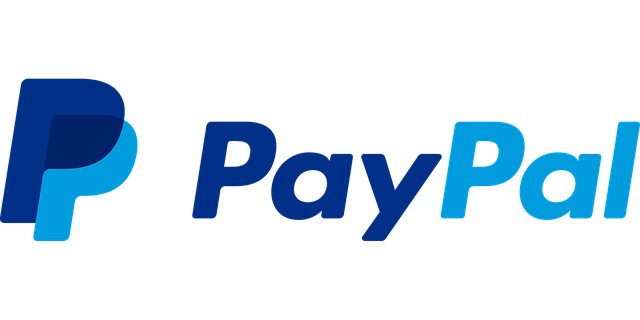Rapid business expansion driven by innovative offerings and meticulous execution leverages alternative financing options like venture capital, angel investors, crowdfunding, and specialized loans for R&D, talent acquisition, and market entry. Today's dynamic landscape offers entrepreneurs a wide array of flexible funding methods, democratizing capital access and enhancing agility. Tailoring financing choices to specific business needs, including growth stage and risk tolerance, ensures alignment with strategic goals.
Alternative funding sources are transforming how businesses navigate rapid expansion. This article delves into the strategies and benefits behind this growing trend, exploring both the advantages and potential drawbacks of various alternative financing methods. From crowdfunding to angel investors and beyond, understanding these diverse financing options empowers entrepreneurs to make informed decisions, ensuring sustainable growth in today’s dynamic market.
We’ll guide you through each step, from conceptualizing rapid expansion to selecting the perfect financing option.
- Understanding Rapid Business Expansion and Its Benefits
- Traditional Financing vs. Alternative Funding Sources
- Types of Alternative Funding Options Available
- Advantages and Disadvantages of Each Alternative Funding Method
- Strategies for Choosing the Right Alternative Financing for Your Business
Understanding Rapid Business Expansion and Its Benefits

Rapid business expansion is a strategic move that involves scaling up operations and entering new markets at an accelerated pace. It’s driven by a strong growth vision, innovative products or services, and an effective execution plan. Businesses embrace this approach to gain a competitive edge, capitalize on emerging opportunities, or diversify their customer base. By rapidly expanding, companies can increase market share, enhance brand visibility, and generate substantial revenue in shorter time frames.
This strategy comes with numerous benefits, including increased profitability, improved operational efficiency, and access to new customer segments. It also allows businesses to stay ahead of the competition by adapting quickly to market dynamics. Moreover, alternative funding options play a pivotal role in facilitating this rapid expansion. These financing solutions, which often include venture capital, angel investors, crowdfunding, or specialized business loans, provide the necessary capital for scaling up, investing in research and development, hiring talent, and entering new markets.
Traditional Financing vs. Alternative Funding Sources

In today’s dynamic business landscape, entrepreneurs have a plethora of financing options at their disposal, marking a stark contrast to traditional methods. Historically, businesses primarily relied on bank loans and investor funding as the go-to sources for capital. However, the advent of alternative funding sources has disrupted this conventional narrative, offering rapid and flexible financing opportunities. This shift is particularly evident in the rise of crowdfunding, angel investors, and peer-to-peer lending platforms.
Traditional financing often involves a lengthy process, stringent requirements, and limited accessibility, especially for startups and small enterprises. In contrast, alternative funding sources provide a more agile and diverse range of choices. Crowdfunding, for instance, allows businesses to tap into a global pool of potential backers, enabling rapid growth through community support. Angel investors offer not only capital but also mentorship and industry connections, fostering entrepreneurial ecosystems. Peer-to-peer lending platforms streamline the borrowing process, connecting borrowers directly with lenders, thereby accelerating business expansion. These alternative financing options democratize access to capital, empowering businesses to seize opportunities and navigate market dynamics with greater agility.
Types of Alternative Funding Options Available

In today’s dynamic business landscape, traditional funding sources may not always be accessible or sufficient for rapid expansion. Fortunately, a plethora of alternative funding options are available to entrepreneurs and businesses seeking to accelerate growth. These financing alternatives cater to diverse needs and offer flexible terms, making them attractive choices for those looking to avoid the stringent requirements of bank loans.
Among the popular alternative funding options are angel investors who provide capital in exchange for equity; venture capital firms that invest in high-growth potential startups; crowdfunding platforms enabling businesses to raise funds from a large pool of individual contributors; and government grants or small business loans designed to support entrepreneurial ventures. Additionally, peer-to-peer lending has gained traction, allowing businesses to borrow from individuals seeking competitive returns. Each financing option comes with its unique advantages and considerations, providing entrepreneurs with a range of choices to fuel their expansion plans.
Advantages and Disadvantages of Each Alternative Funding Method

Alternative funding methods offer entrepreneurs a range of exciting opportunities for rapid business expansion, each with its own set of advantages and disadvantages. One such option is angel investors, who provide substantial financial support in exchange for equity. This method offers benefits like access to valuable industry insights and mentorship from experienced professionals. Additionally, it allows founders to maintain control over their business while gaining the capital needed for growth. However, dealing with equity and potential loss of ownership can be a disadvantage, especially if funding goals are not met.
Another popular choice is crowdfunding, which leverages the power of a large online community. It’s an excellent way to validate market demand and gain early adopters, as well as generate buzz around your business. The low barrier to entry means even startups with limited resources can access funds. However, high competition for attention and funding, along with regulatory compliance, can make it challenging. Moreover, the lack of personal connections may not provide the same level of guidance and support as traditional financing options.
Strategies for Choosing the Right Alternative Financing for Your Business

When exploring alternative funding, it’s crucial to consider your business’s unique needs and goals. Different financing options cater to various stages of growth and have distinct terms and conditions. For instance, equity crowdfunding is ideal for startups seeking seed capital, while angel investors offer larger sums in exchange for a significant stake. On the other hand, loans from banks or alternative lenders provide a more traditional approach with fixed interest rates and repayment periods.
To make an informed decision, evaluate your cash flow, growth plans, and risk tolerance. Smaller businesses might prefer short-term loans or lines of credit for quick capital injection, while established companies can opt for long-term financing to fund expansive projects. Examining the pros and cons of each financing option will help you choose the most suitable alternative that aligns with your strategic vision.






